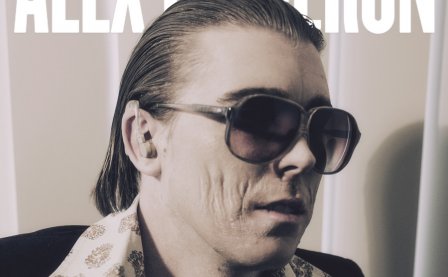In the past, Seekae’s venerable array of timbres and colors have come together in a form that, while aesthetically pleasing and comfortable, hasn’t offered much in the way of breaking free from territory laid out by the luminaries of their particular sphere — think Gold Panda, Mount Kimbie, et al. I imagine The Worry could’ve easily fallen into the same creative rut that these artists have in years following their now-seminal work (à la chillwave, perhaps). To their credit, however, Seekae haven’t decided upon a radical change in direction, but instead upon a more considered metamorphosis. The most noticeable difference is due to a new personnel dynamic — formerly the trio’s rhythmic rock, Alex Cameron now takes up an additional mantle as leading vocalist — and the result is a refreshing break from the norm.
Where the exotic instrumentation of post-dubstep (and “indietronica,” for that matter) was once a distraction from the empty scaffolding of wonky, unquantized beats, here they’re craftily activated tools with a point, be it to grant direction to a groove, to offer a glimmer of harmony or dissonance, or to aid Cameron’s stories in blooming. While these are angular constructions that bear all of the rhythmic and instrumental signposts of house, garage, techno, and hip-hop, they are hewn from something mightier that doesn’t enslave itself to the conventions of these styles.
On lead single “Test and Recognize,” Cameron’s husky, monotonous drawl of a melody is augmented with chewed-up and slurred backing vocals. They mimic his lines yet seemingly ad lib distorted harmonies over a skipping garage beat, with synths and chords driving along with subtle changes that push the overall sound toward something that resembles Caribou’s Swim or Mount Kimbie’s Crooks & Lovers. When the chords evaporate into a sparer pre-chorus section, however, those warped harmonies take a momentary break with the introduction of a de-tuned synth line that threatens to collapse the awkward groove setup beforehand.
It’s these moments of uncomfortable risk that really sets this material apart from their previous two albums. This is obviously a tricky maneuver — think how Cold Spring Fault Less Youth turned out — but when the bass kicks back in with backing vocals and original synth lines, the languidly croaking voice of Cameron and the bombastic assemblage pay off in a notably unique manner, reminiscent of both old Seekae and their contemporaries.
There are instances of this tension across the album, built and released to ecstatic effect. “The Worry” and “Hands” operate with the introduction of more overt guitar parts and lush, dubby textures; to counterbalance this, Seekae employ a simpler palette on other tracks, one that allows their lyricisms to cut through to the listener. On “The Stars Below,” Cameron takes the perspective of an arrogant lover whose pathetic, jealous remarks to a rival sit over a somber pad that suggests a less-obvious narrative route than what the content merely speaks: “Do you even know what real men do?”
Much of the gigantic instrumental catalogue that Seekae borrow from is perhaps worn out by its usage earlier this decade, but the trio make smart use of their sounds in a way that transcends the fashionability of the world of skittering, unquantized post-dub of years gone. If there weren’t a reliance upon these timbres and textures, and if the chosen sounds were perhaps more indebted to the 90s house and techno revivalism or kosmische synth-worship of the now, I doubt I’d like this album any more. Because the striking effect comes from their songwriting and compositional skill, a re-invention and a gamble that has been skilfully executed on The Worry.
More about: Seekae


